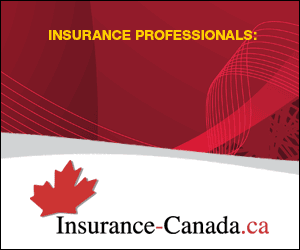Beware: unlicensed sellers of insurance leave Canadians with no coverage, and less cash
Toronto, ON (June 18, 2014) – Aviva Canada, one of the country’s leading providers of home, auto, recreational vehicle, group and business insurance, is warning Canadians about the risks of insurance deals that seem too good to be true.
Aviva Canada is releasing details of a recent insurance scam where an unlicensed seller of insurance took cash from an innocent victim to set up an auto insurance policy. The perpetrator did not secure coverage and kept the money, leaving the victim out thousands of dollars and driving without coverage.
“It is important to use a licensed broker when purchasing insurance. Even if a friend refers you to someone who says they sell insurance, make sure that they are legitimate,” said Steve Cohen, Senior Vice-President, Personal Lines Pricing & Underwriting for Aviva Canada. “Too often, consumers are taken advantage of by opportunistic individuals who claim that they’re providing insurance, when in fact, they are pocketing the money for themselves.”
On April 10, 2014, Renato (Nico) Nolivos of Mississauga, Ontario was charged with:
- 3 counts of Fraud Under $5,000;
- Uttering a Forged Document;
- Making a False Document/
Mr. Nolivos is scheduled to appear in a Newmarket, Ontario court on July 10, 2014.
A client of Mr. Nolivos notified Aviva Canada and York Regional Police that she had been the victim of fraud. In January 2013, a friend referred her to Mr. Nolivos to get cheaper insurance. It is alleged that Mr. Nolivos attended her home, provided her with a temporary insurance card, and collected $3,125 worth of premium in cash. The woman became wary when she never received a permanent insurance card.
After following up with Mr. Nolivos’ network and paying an additional $1,660 in cash, an Aviva policy was purchased on the victim’s behalf through a licensed insurance broker. By June, Aviva Canada had only received two months of premium, so the insured was sent a notice that her policy was going to be cancelled for non-payment. The $4,785 in cash the victim provided to Mr. Nolivos is unaccounted for.
York Regional Police and Aviva Canada worked together to investigate this alleged fraud. On April 10, 2014, Mr. Nolivos was arrested and charged on several counts relating to his involvement in the fraudulent sale of insurance. His next court date is set for July 10, 2014. Aviva Canada has now secured proper auto insurance for the victim.
“This is just one example of an increasing number of scams involving the sale of insurance. Criminals are also preying on innocent victims through classified websites like Craigslist and Kijiji, or are exploiting referrals through auto repair shops and car dealerships,” continued Cohen. “Innocent victims are losing thousands of dollars without obtaining any real coverage. This puts the consumer at a huge financial risk in the unfortunate event that they are involved in a collision.”
Risks of not having proper insurance
Anyone found driving with a false insurance card, or no insurance, could be charged with a criminal offence. If the driver becomes involved in a collision, they will not be covered for any damage to their vehicle. They can also be sued for damage to other vehicles involved in, or for bodily injuries resulting from, an accident, and will be held personally liable.
Don’t become a victim! Protect yourself against insurance scams
Before handing over any money, make sure that you are dealing with someone who is reputable.
Here are some signs that you may be dealing with an unlicensed seller of insurance:
- If a deal seems too good to be true, it likely is. Call the insurer listed on the policy to ensure that the premium you have been quoted is correct and that they have a record of your application.
- They ask you to pay your premium in cash. A reputable insurer or broker will likely ask for a cheque or credit card to cover your premium.
- You do not receive a valid insurance card or a copy of your policy from your insurance provider. Insurers will always provide you with documentation once a policy is properly set up.
- Meetings only take place in public venues like coffee shops or your home. Insurance brokers and insurers will have branded websites and/or an office.
- A friend refers you to someone who can get you cheap insurance. In turn, your friend gets a fee for referring you. A licensed insurance professional will not ask for, or take, any referral fees.
- A car dealership offers to arrange for you to get cheap insurance. This is a banned business practice.
If you are an Aviva Canada customer, and you believe that you may have been the victim of insurance fraud, contact our 24/7 Fraud Information Centre at 1-855-332-5255.
What Aviva Canada is doing to fight fraud
Building on already strong capabilities, Aviva Canada has stepped up its tough approach to tackling fraud with more dedicated resources and an investment in technology that aims to identify fraud and even anticipate the potential for fraud before it happens. With an industry-leading anti-fraud team, plus solid public sector and industry collaboration, Aviva Canada is well positioned to combat fraud better than ever before. The impact of Insurance fraud in Canada is estimated at over $1.6 billion dollars annually.
About Aviva Canada
Aviva Canada is one of the leading Property and Casualty insurance groups in Canada providing home, automobile, recreational vehicle, group and business insurance to more than three million customers. A wholly-owned subsidiary of UK-based Aviva plc, the company has more than 3,000 employees, 25 locations and 1,700 independent broker partners. Aviva Canada and its employees invest in positive change including through the Aviva Community Fund and Eva’s Initiatives, its partner in Aviva’s global Street to School program to help homeless and other at-risk youth reach their potential.
For more information visit AvivaCanada.com.
SOURCE: Aviva Canada Inc.



